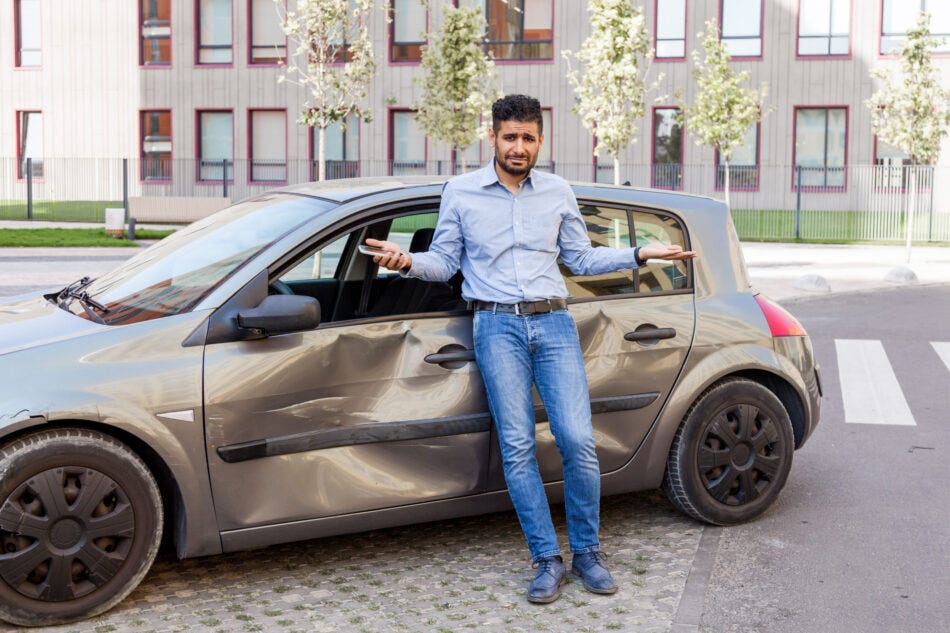A driver who fails to remain on the scene of an accident or fails to provide their information can be fined and face imprisonment. However, some people still decide to flee. This article explains the consequences for the driver who flees and for a victim of a hit-and-run incident.
If you’re a victim of a hit-and-run, your car insurance will only cover you if you have comprehensive/collision or all-perils coverage on your policy. Otherwise, you are not covered.
What is considered a hit-and-run?
A hit-and-run is when a driver causes physical damage to property or injury to another person and leaves the scene without leaving their information, assisting anyone who is injured, or contacting the police.
Under Canada’s criminal code, drivers are required to offer assistance to anyone who is injured and leave their name and address. Under Alberta’s Traffic Safety Act, drivers are required to remain at the scene, offer assistance, and provide their name, address, driver’s license number, license plate and insurance information. They can also leave a visible note on a vehicle if it was struck when there’s no one around that includes this information.
Penalties for a Hit-And-Run
In provinces, such as Alberta, penalties for drivers convicted of a hit-and-run (or failure to remain at the scene of an accident or failure to report an accident) may include:
- Demerits on license.
- The license being revoked.
- Fines.
- Imprisonment.
The more severe the outcome of the accident, the more severe the penalties usually are. If convicted, the driver will also see a large increase in their car insurance rates.
Car Insurance Coverage for a Hit-and-Run
If you’re the at-fault driver, your third-party liability coverage would help cover the costs of damage, injuries and lawsuits. However, if you’ve fled the scene of the accident and been criminally charged over it, your insurance may not cover any of these costs. This is because they do not cover criminal actions.
If you’re a victim of a hit-and-run, your car insurance will not cover the damage unless:
- You have collision/comprehensive or all-perils coverage on your vehicle. This will cover physical damage from a hit-and-run.
- You have family protection coverage, which helps cover medical costs if someone in your family is injured in an accident with an uninsured or underinsured driver.
- The driver is later identified – then you may be able to make a claim under DCPD (Direct Compensation Property Damage) coverage and the other driver’s third-party liability insurance.
What to Do If You’re the Victim of a Hit-and-Run
If you’re the victim of a hit-and-run, here’s what you should do:
- Document the date, time, weather and how you discovered the damage.
- Take pictures and video of the damage.
- Call the police and file a police report.
- Ask nearby homeowners or business owners if they witnessed anything.
- Call your insurance company.
Hit-and-runs are frustrating to deal with. Your broker is here to help you. Please give us a call to discuss your car insurance coverage and how to protect yourself in the event of a hit-and-run accident.

